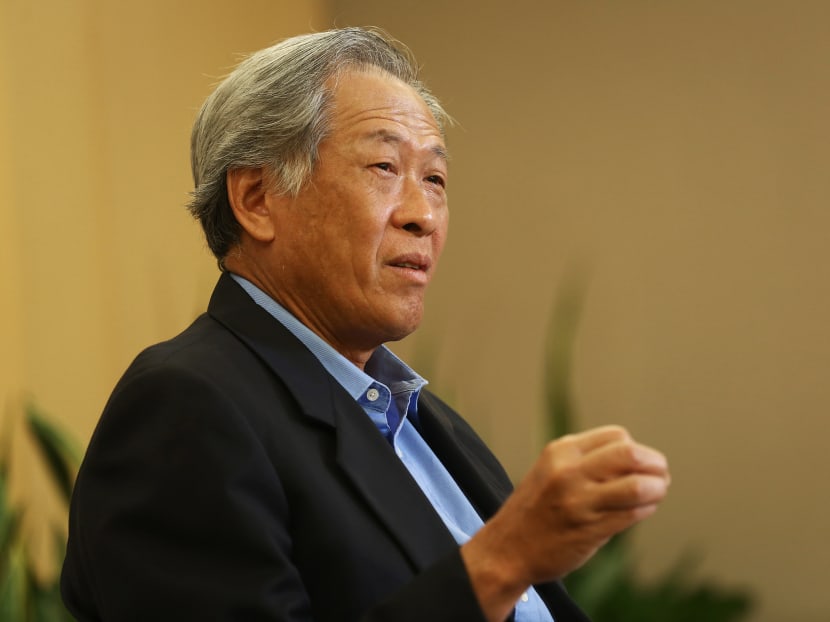Unanimous support within Asean for joint maritime military drills with China: Dr Ng
SINGAPORE — There is “very strong support” within the Association of South-east Asian Nations (Asean) for the maritime military exercise with China to be held later this year, with all 10 member states accepting the invitation to take part, Defence Minister Ng Eng Hen said on Wednesday (Feb 7).
SINGAPORE — There is “very strong support” within the Association of South-east Asian Nations (Asean) for the maritime military exercise with China to be held later this year, with all 10 member states accepting the invitation to take part, Defence Minister Ng Eng Hen said on Wednesday (Feb 7).
The joint military drills were first proposed by China in 2015, but some Asean members reportedly objected as Beijing wanted them conducted in the South China Sea where there are overlapping territorial claims.
Following the Asean Defence Ministers’ Meeting (ADMM) Retreat, it was announced on Tuesday that the inaugural exercise will be held at the end of this year. Speaking to the media on Wednesday, Dr Ng was asked about the level of support for the exercise. “It’s a very friendly gesture — come and exercise and let’s work together. How can anyone say no to that?” said Dr Ng, adding that the Asean defence ministers were enthusiastic about the idea which would build trust and confidence among the countries.
The joint drills will comprise a table-top exercise, followed by the involvement of troops. Kyodo News agency reported that the table-top exercise will be held in China, possibly in October, while the field training exercise will be held in the waters of an Asean member state, possibly the Philippines, in late November or December. However, Dr Ng said the details were still being worked out.
In October last year, China and Asean member states held their largest-ever joint maritime rescue exercise, signalling a lull in South China Sea tensions. It involved about 1,000 rescuers aboard 20 ships and three helicopters, according to Chinese state media reports. China, Thailand, the Philippines, Cambodia, Myanmar, Laos and Brunei took part, with Vietnam notably absent.
China asserts sovereignty over almost all of the South China Sea, amid rival claims from several South-east Asian countries — including four Asean members Malaysia, Brunei, Vietnam and the Philippines.
In October, Singapore will host the ADMM, as well as the 18-member ADMM-Plus comprising Asean, Australia, China, India, Japan, New Zealand, South Korea, Russia and the United States.
Dr Ng said the Republic hopes to get all 18 countries to agree on a code for unplanned encounters in the air at the October meeting.
The Code for Unplanned Encounters at Sea (Cues) — an agreement reached in 2014 to reduce incidents at sea — was adopted by the 18 ADMM-Plus countries last year.
A similar code for unexpected encounters in the skies was “just as important”, said Dr Ng. He noted that a miscalculation when two military aircraft cross paths can result in a “security incident of enormous impact”.
While Asean member states were unanimous on the need to work towards the code, Dr Ng said it would be a “significant challenge” for Singapore, as chair of ADMM and ADMM-Plus this year, to bring all the countries involved to an agreement.
“It’s not an easy task to get 18 countries whose area of operations span the whole world, except maybe Africa and Latin America, to agree on a code for unexpected encounters in the air,” said Dr Ng. “We would have to dig deep for our persuasive powers.”
Dr Ng also reiterated the need for Asean countries to join forces in combating terrorism. Asean defence ministers have pledged to enhance co-operation on this front through joint exercises and training, as well as information-sharing, for instance.
The ministers have accepted a framework of “resilience, response, recovery” proposed by Singapore to counter the threat. Under resilience, for example, the various Asean member states recognised the need for initiatives to guard against radicalisation. There was also a need for more intelligence platforms to respond to the threat. As ADMM chair this year, Singapore will look into how existing intelligence platforms can be strengthened, Dr Ng said.
He stressed that the framework, however, cannot be the sole domain of defence ministers.
“This allows a framework in which the defence counterparts within Asean can put our various programmes together, and where it’s not our call, work with other agencies to form a more strategic framework,” he said. The bloc will also work with the external partners on intelligence, and building capabilities and resilience in the fight against terrorism.
The 10 Asean member states are Brunei, Cambodia, Indonesia, Laos, Malaysia, Myanmar, the Philippines, Singapore, Thailand and Vietnam.












